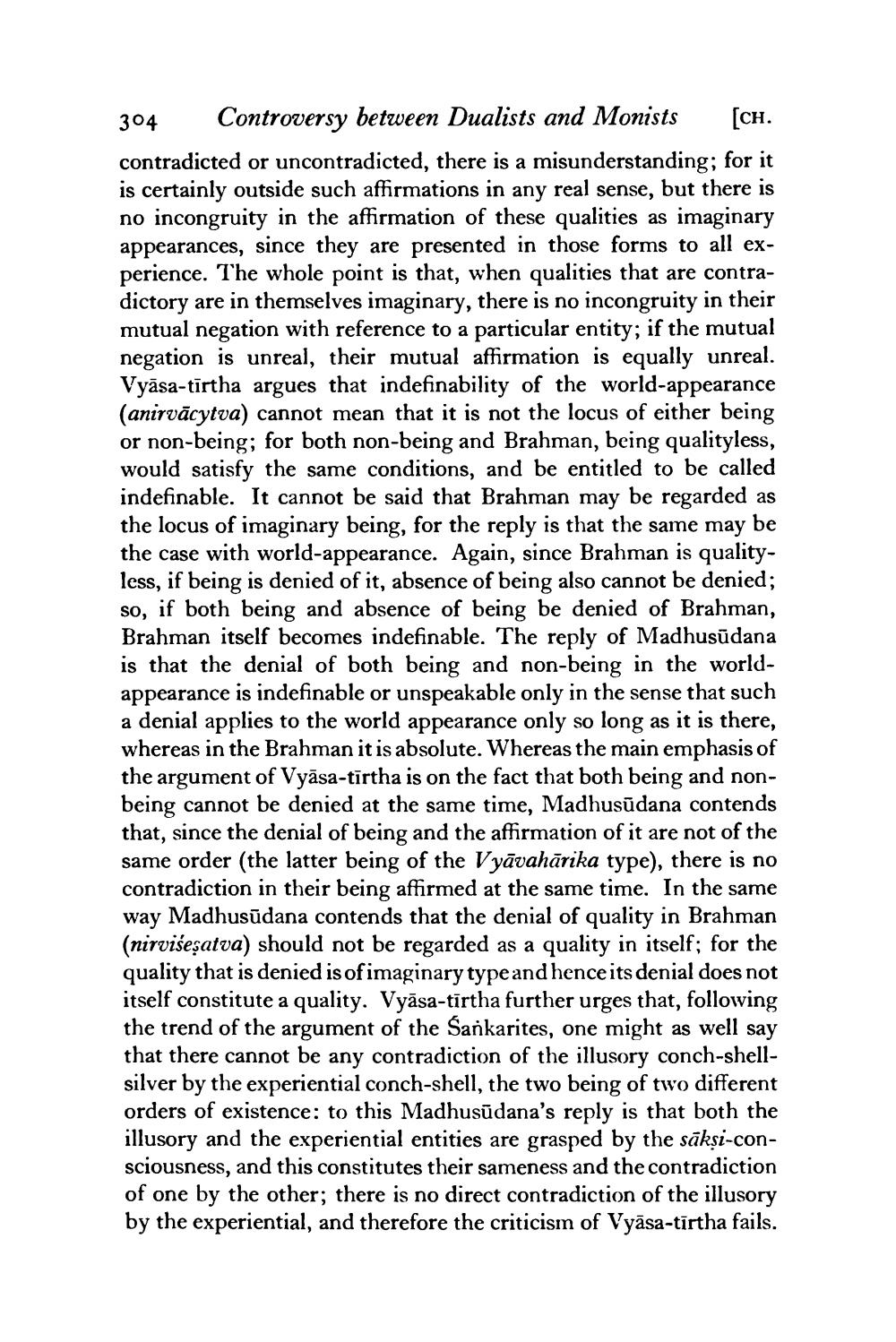________________
304 Controversy between Dualists and Monists [CH. contradicted or uncontradicted, there is a misunderstanding; for it is certainly outside such affirmations in any real sense, but there is no incongruity in the affirmation of these qualities as imaginary appearances, since they are presented in those forms to all experience. The whole point is that, when qualities that are contradictory are in themselves imaginary, there is no incongruity in their mutual negation with reference to a particular entity; if the mutual negation is unreal, their mutual affirmation is equally unreal. Vyāsa-tīrtha argues that indefinability of the world-appearance (anirvācytva) cannot mean that it is not the locus of either being or non-being; for both non-being and Brahman, being qualityless, would satisfy the same conditions, and be entitled to be called indefinable. It cannot be said that Brahman may be regarded as the locus of imaginary being, for the reply is that the same may be the case with world-appearance. Again, since Brahman is qualityless, if being is denied of it, absence of being also cannot be denied; so, if both being and absence of being be denied of Brahman, Brahman itself becomes indefinable. The reply of Madhusūdana is that the denial of both being and non-being in the worldappearance is indefinable or unspeakable only in the sense that such a denial applies to the world appearance only so long as it is there, whereas in the Brahman it is absolute. Whereas the main emphasis of the argument of Vyāsa-tīrtha is on the fact that both being and nonbeing cannot be denied at the same time, Madhusūdana contends that, since the denial of being and the affirmation of it are not of the same order (the latter being of the Vyāvahārika type), there is no contradiction in their being affirmed at the same time. In the same way Madhusūdana contends that the denial of quality in Brahman (nirvišeşatva) should not be regarded as a quality in itself; for the quality that is denied is of imaginary type and hence its denial does not itself constitute a quality. Vyāsa-tīrtha further urges that, following the trend of the argument of the Sankarites, one might as well say that there cannot be any contradiction of the illusory conch-shellsilver by the experiential conch-shell, the two being of two different orders of existence: to this Madhusūdana's reply is that both the illusory and the experiential entities are grasped by the sāksi-consciousness, and this constitutes their sameness and the contradiction of one by the other; there is no direct contradiction of the illusory by the experiential, and therefore the criticism of Vyāsa-tīrtha fails.




